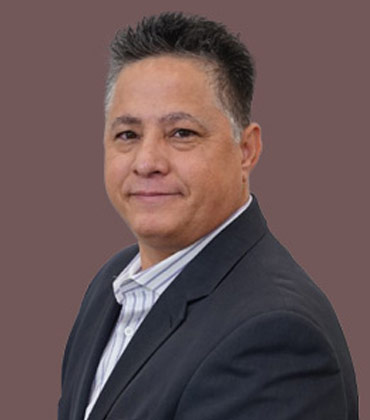THANK YOU FOR SUBSCRIBING
Juliana Nogueira is an Agile Expert, Project and Portfolio Manager, Scrum Master, Facilitator, and OKR Coach based in the Federal District, Brazil. With experience at TJDFT and Universidade de Brasília, Juliana is an Agile Leader at the IT's Agile Project Management Office in Brasilia, where she coordinates a team that helps others adopt agile methodologies like Scrum, Kanban, SAFe and Lean Inception to deliver value more effectively. Passionate about the principles of adaptability, simplicity, collaboration, and focus on results, Juliana's Agile PMO also advises managers on IT project portfolio ranking and prioritization to improve transparency and governance. She also facilitates a cross-functional Kanban team, driving the digital transformation journey at TJDFT. Through this article, Juliana explores the challenges and triumphs of implementing Agile Portfolio and Project Management (PPM) within the Brazilian public sector, specifically the Justice Court system. The Challenge
In a world ruled by AI-driven services, many government institutions still rely on closed, proprietary software—rigid systems that are difficult to customize, integrate, or scale. These platforms create data silos, slow responses to regulatory changes, and make innovation costly. As a result, agencies remain bogged down by paperwork and outdated processes, leading to inefficiency and eroding public trust. ARCO, a Mexican software provider, challenges this status quo with a platform it fully owns, offering total control and customizability for government applications. With its flagship product, the Government Resource Planner (GRP), the company delivers a flexible, compliant, and user-friendly solution designed to boost public sector efficiency and transparency. It modernizes the very vision of governance, going beyond simply upgrading outdated systems. More than just a management tool, ARCO GRP is the most comprehensive system on the market, built to achieve full accounting harmonization across all three levels of government. It ensures institutions fully comply with Mexico’s General Government Accounting Law (LGCG) and follows the standards issued by the National Council for Accounting Harmonization (CONAC). Designed for municipalities, states, and the federal government, the platform helps agencies plan, manage, and report their finances and operations—without waiting years to see results. “Our GRP system adapts to the needs and processes of public institutions by owning 100 percent of the source code, adhering to legal frameworks, and aligning with best practices,” says Rodrigo Gonzalez Balsa, CEO. Built on a modular microservices architecture, ARCO GRP allows customized functionality for each type of client. Even when a particular function is not yet developed, implementation teams—certified in CMMI, ISO 9001, ISO 27001, and ISO 37001—begin analyzing the situation to deliver personalized solutions. The platform also simplifies migration from legacy systems, transforming data and enabling users to upload information independently via data import tools. Adoption is further supported through awareness campaigns and hands-on training. Its user-friendly interface requires users to understand only their job functions, eliminating the need to learn complex commands or technical routines. A recent example of this approach is the implementation of ARCO GRP at the Mexican National Customs Agency (ADUANAS-CUSTOMS). The software was deployed across all 50 active customs offices and the central administration, enabling real-time monitoring of revenue collection and detailed tracking of both central and local expenditures. This digital transformation allowed the agency to ensure regulatory compliance and optimize financial performance. Enhanced fiscal oversight also directly contributed to increased and more efficient revenue collection..
Passion infused with skills, planning, and research builds nonprofit organizations. However, these organizations often work with limited resources, leading to minimal growth. To cope with this, they require more data and business workflow experience, which demands an effective management system and a tailored approach to meet the organization’s distinct needs. NewOrg Management System recognizes this need and helps small and midsize nonprofit organizations and local government service providers with streamlined data management. It is an independent, privately owned software company that provides solutions exclusively for complex and evolving data management needs via a secured cloud-based data management system. NewOrg helps organizations establish customized case management and emergency assistance software at a low cost to support peripheral agencies, including family services, immigration and resettlement services, and police diversion. “Our software provides a very flexible environment for various complex workflows. The primary focus is to offer off-the-shelf but very configurable solutions via procurement assistance and direct assistance to mitigate homelessness and mental health challenges,” says Jared Ferguson, Strategic Partner Evangelist of NewOrg Management System. At the heart of NewOrg’s offerings is its integrated data management software – a long-term solution. This software serves as a centralized hub for communication, reporting, and outcome management. Through a holistic approach, it streamlines processes like scheduling and compliance tracking and eliminates redundancy to enhance transparency, contributing to improved efficiency and sustainability.
You're rushing to make it to class on time, but the challenge of finding a parking spot stands in your way. As you circle the campus, every parking lot seems full, and there’s no clear sign of availability. Then you’re met with a broken parking barrier arm in the final parking lot causing a line of cars. After wasting time cruising around the lot, you eventually find a parking spot - only to realize you’re already late. Scenarios like this are all too common, not just at universities but across various parking facilities, leaving many stressed and running behind schedule. Fortunately, Frogparking is transforming the parking experience with its advanced parking technology solutions that help drivers quickly find available spots - without the hassle.

Gerardo Guerrero Martinez, Chief Data Officer (CDO), Gobierno del Estado de Guanajuato

Nelson Gonzalez, Assistant Innovation & Technology Director / CISO, City of Coral Gables

Kevin Wilkins, Chief Information Officer, City of Fort Collins

Ria Pavia, Deputy Director of Innovation, Performance and Audit, City of Ontario

Nathaniel Wentland, CIO, Loudoun County Government
Latin America aims for digital sovereignty, with GRP systems essential for data governance, compliance with privacy regulations, and facilitating cloud sovereignty, ensuring control over national data assets.
Platform thinking in Latin America enhances public service through modular, scalable systems, boosting efficiency, inclusion, innovation, and trust while addressing bureaucratic challenges and fostering economic growth.
Tools for Smarter Governments
Yet the promise of GRP comes with hard realities. Legacy infrastructure, fragmented databases, and strict procurement rules slow down implementation. Many agencies still struggle to migrate decades of records while maintaining daily operations. Security is a constant concern as cyber threats grow more sophisticated. And even when systems go live, cultural resistance inside departments can stall the benefits of automation and analytics.
Despite these hurdles, momentum is building. Cloud-native platforms are replacing monolithic systems, allowing governments to scale and update with less disruption. Low-code customization is giving internal teams more control over workflows. AI-driven insights are helping leaders forecast budgets, track resources, and respond to crises with greater precision. The shift is no longer about whether modernization will happen, but how fast agencies can adopt it.
This edition features leaders who embody that urgency. Kevin Wilkins, the City of Fort Collins’s chief information officer, brings a perspective on leveraging technology to strengthen community services and data-driven decision-making. Ria Pavia, the City of Ontario’s Deputy Director of Innovation, Performance and Audit, shares how innovation and performance management intersect when public expectations rise and resources remain finite. Their inclusion reflects the growing role of municipal leaders in shaping smarter, more responsive governments.
Software alone will not define the future of GRP. Progress will come from leaders who can translate technology into measurable public impact and weave flexible systems into the government’s everyday work.